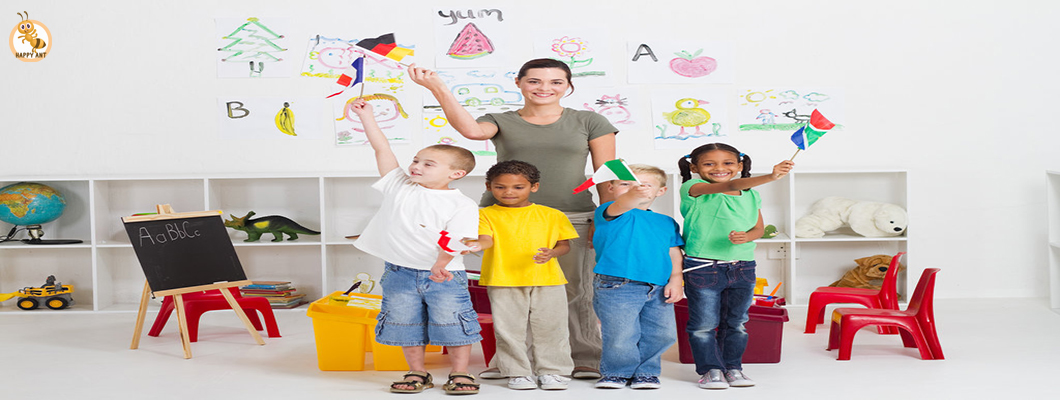
How to teach children a second
language?
Do you want to teach your child a
foreign language? Learning a second language is becoming more and more popular
all over the world for many reasons. Considering the many benefits of being
bilingual, it is natural for parents to want to take the lead in teaching their
child a second language. By looking for outside educational resources and
strengthening the learning process at home, you can help your child learn a
second language in no time!
Although today we have several
techniques for learning foreign languages as well as different methods for
teaching foreign languages, they all have one thing in common. That is, if you
ask how to master a second/foreign language, the answer will be the same either
way, by using it regularly, so the key to successfully learning any foreign
language is exposure.
Creating a positive learning environment
Start teaching your child as early as possible. The sooner children learn a second language, the easier it is for them. If possible, expose your child to a second language while he is still an infant. If a family member is fluent in English (native), encourage them to speak a second language at home to immerse your child in the second language.
Be a patient and empathetic teacher. If your child is having trouble with the new language, be patient and supportive and ask him why he is having trouble with it and doesn't feel comfortable. Try to listen to the problems of their teaching approach and adapt yourself to their needs. If your child gets frustrated or has trouble paying attention, you can set aside time for a game or snack. Praise your child for his progress. Important achievements, such as successfully learning the names of colors or animals, or being able to hold simple conversations, should be rewarded and praised through positive affirmation or small rewards such as candy, toys, or a favorite video. Regular praise reinforces your child's desire to learn.
Search for external sources
Enroll your child in a bilingual school or bilingual program. High exposure or bilingualism is a very effective educational method that combines foreign language courses with the traditional school curriculum.
Dual language programs offer instruction in all subjects in the students' native language on one day, followed by instruction in all subjects in the second language on the next day. This is a good alternative to just getting an education in a new language.
Invest in a language learning software. There are many programs for kids available online that will enhance your child's ability to learn a second language. Many of these programs are designed to immerse children in a second language through interactive games, videos, and quizzes. This approach is especially helpful for busy parents.
Enroll your child in foreign language classes. Consider private tutoring options in your area that are appropriate for your child's age. The language classes offer quality educational lessons and allow your child to learn sweet English alongside his peers.
Expose your child to a native
language. If a family member is fluent in a second language, invite and
encourage them to speak that language exclusively. Consider hiring a native
nanny who can help your child become more familiar with the language.
Methods of exposing the child to English
- Play games in a foreign language.
Children spontaneously learn about the world around them, through everyday activities, at an early age. However, one of the best and most effective forms of learning is through their favorite activity, play.
Learning through play is a proven method of learning a foreign language. For example, playing checkerboard with children can be a great way to teach counting in that language. Also, the use of educational technology gives very good results in learning foreign languages at a young age. You can find a number of fun games or apps online, such as interactive puzzles, that can help your child learn the names of colors, animals, and shapes in different languages. In this way, apart from learning the words of a foreign language, the child simultaneously acquires other important information about the world.
- Broadcast children's cartoons and shows in foreign languages
When learning a foreign language, you should consider the following. There is a big difference between language exposure and language learning.
Usually, when we talk about learning a language, we mean learning grammar rules, memorizing words and exercises. However, the most important thing for young children is to be exposed to the sounds, rhythm and melody of a language, and one of the best ways to do this is through cartoons and children's shows. At a young age, children master speech by listening, repeating and associating words with specific actions. This is why many children are able to master a foreign language simply by watching cartoons in that language.
Also, many cartoons and television programs are specifically designed for language learning, where children learn the meaning and pronunciation of words through the adventures of cartoon characters. For more access to such cartoons, you can install the Happy Ant site on your mobile browser and for your child. Play different cartoons.
Exposure to a foreign language from an
early age has a great impact on your child. This makes their pronunciation
similar or indistinguishable from that of native speakers. Simply put, children
are very good imitators, and unlike older students who almost always retain
their native accent, they pick up new things at an early age, including
fluency. they learn easily.
- Read stories in English
You will find a number of specialized books for learning different languages from an early age in bookstores. With your help in reading, writing and the meaning of words, your child will soon master the meaning and pronunciation of foreign words. You can also read simple bedtime stories in a foreign language. Such stories usually contain common phrases, so the child will easily memorize them.
Books are a valuable tool in the
formation of our personality and professional life. Parents, like the school,
play an important role in this process. We hope the tips in this article will
help your child learn a foreign language. To read more articles about second
languages and teaching children second languages and to find resources, visit
the Happy Ant website.

Leave a Comment